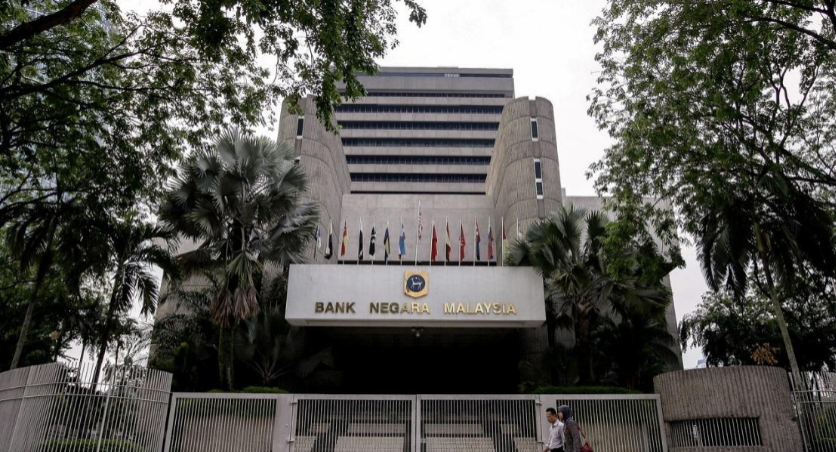Normalised OPR allows response to slowing economy - Economist
Economist sees room for rate cut amidst lower growth

KUALA LUMPUR - The normalisation of the Overnight Policy Rate (OPR) since 2022 has created the policy space for Bank Negara Malaysia (BNM) to respond to possible lacklustre economic growth going forward, an economist said.
Bank Muamalat chief economist Mohd Afzanizam Abdul Rashid said prevailing monetary conditions are already restrictive with the real interest rate hovering at 1.5 per cent in December 2023 compared to the long-term average of 0.6 per cent.
"And we could see that the financing approval rate in the banking system had gone down to 49.9 per cent in December 2023 from 61.7 per cent in August 2022.
"In that sense, there is a possibility that BNM might want to reduce the OPR should the growth momentum falter,” he told Bernama.
Malaysia’s Gross Domestic Product (GDP) for the fourth quarter (4Q) of 2023 came in lower-than-expected at 3.0 per cent, which was below the Department of Statistics Malaysia’s advance estimate of 3.4 per cent and the 3.3 per cent growth achieved in the preceding quarter.
"The main revisions that we saw in the final reading were for the services and manufacturing sectors compared to the advance estimates. The services sector’s growth was marked down to 4.2 per cent from 4.7 per cent in the advance estimate, and the manufacturing sector’s was revised lower to a 0.3 per cent contraction from a 0.1 per cent growth,” he noted.
In contrast, the growth rates for the mining, construction, and agriculture sectors were revised upwards to 3.8 per cent (from 3.7 per cent previously), 3.6 per cent (2.5 per cent earlier), and 1.9 per cent (1.2 per cent before).
On the demand side, growth in consumer spending, which formed 60.8 per cent of the total GDP, decelerated to 4.2 per cent from 4.6 per cent in the previous quarter.
"While the labour market continues to improve, which would allow households to spend, issues surrounding the higher cost of living may have resulted in consumers being cautious in their spending habit.
"This is reflected in the Consumer Sentiment Index (CSI) which has hovered below 100 points for four consecutive quarters, signalling that consumers were mostly pessimistic about the prevailing economic conditions,” he added.
The latest CSI reading in 4Q 2023 was at 89.4 points, higher from 78.9 points in the previous quarter.
On top of that, the country’s net exports declined by 35.6 per cent during the final quarter of 2023 compared with -22.7 per cent in the previous quarter.
Mohd Afzanizam said this goes to show that Malaysia has an open economy; therefore, "any gyration in external demand will be effectively transmitted to our exports and the manufacturing sector.”
"Domestic demand will be a key underpinning factor that will ensure the Malaysian overall growth will remain fairly stable. On that note, fiscal and monetary policies are the main factors to ensure that growth will be resilient in 2024,” he said.
He reckoned that to boost the country’s fiscal position, accelerating the development expenditure (DE) would be a strategic imperative.
"It would ensure the economy grows sustainably as DE (filters through), improving the productivity and the capacity of the economy in the mid to long run.
"In the short run, the implementation of infrastructure projects will have a spillover effect on the key sectors, namely construction, manufacturing and services,” he said.
The economist said in the long run, the completed infrastructure projects would help the country realise its productivity gains and shore up the growth of the economy. - BERNAMA
Download Sinar Daily application.Click Here!














